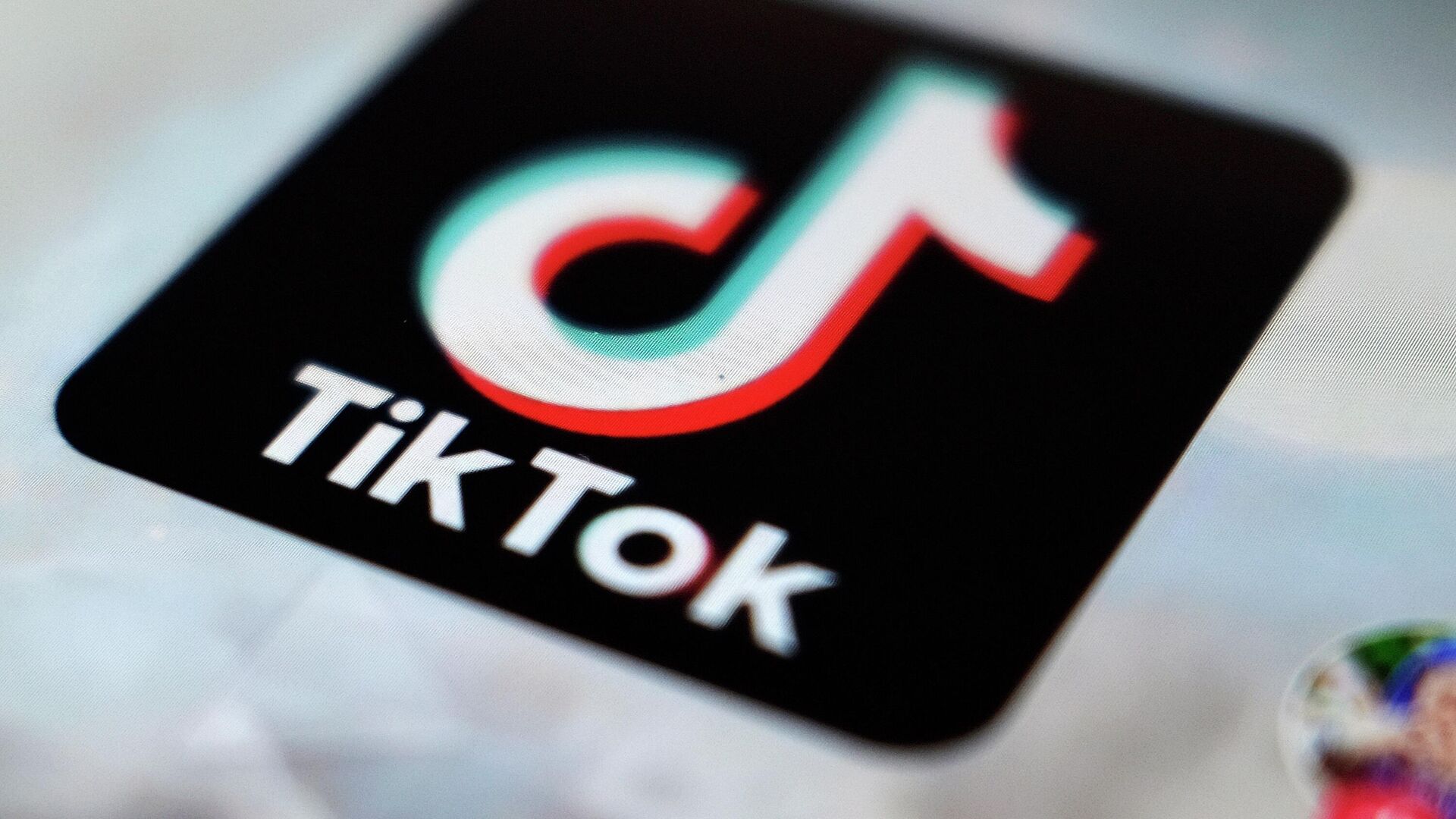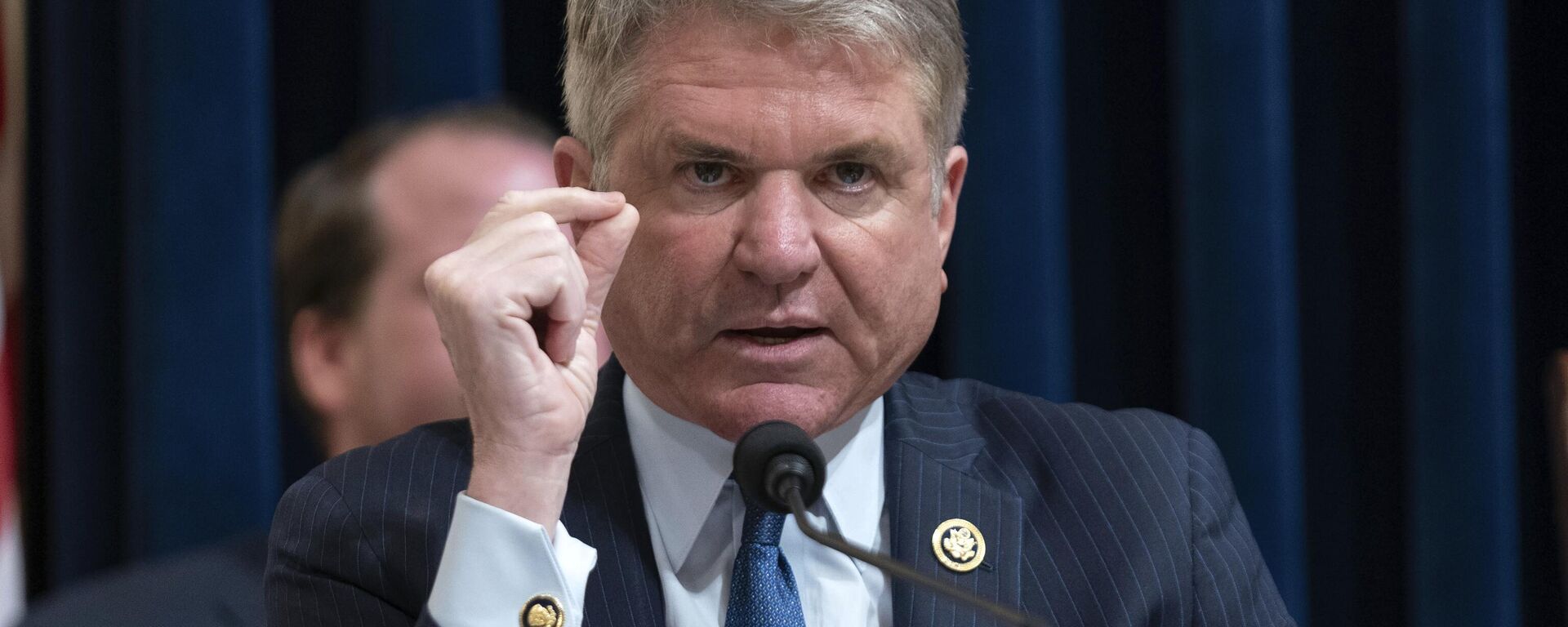https://sputnikglobe.com/20240422/privacy-concerns-about-tiktok-are-absurd-1118065837.html
Privacy Concerns About TikTok Are ‘Absurd’
Privacy Concerns About TikTok Are ‘Absurd’
Sputnik International
On Saturday, the US House of Representatives passed a bill that would ban TikTok if its parent company does not sell the app within a year. Lawmakers cite privacy concerns, but that claim doesn't hold up to scrutiny.
2024-04-22T23:20+0000
2024-04-22T23:20+0000
2024-04-22T23:20+0000
analysis
national security agency (nsa)
mark warner
americans
china
bytedance
israel
beijing
us
tom cotton
https://cdn1.img.sputnikglobe.com/img/07e6/08/14/1099786674_0:304:3000:1992_1920x0_80_0_0_43ee27e2eb94a72edbaa4711f9e4ec86.jpg
The US Government’s assertion that its potential TikTok ban is designed to protect the privacy of Americans is absurd, journalist and podcaster Peter Coffin told Sputnik’s Fault Lines on Monday.On Saturday, the US House of Representatives passed a bill that requires TikTok parent company ByteDance to sell the app within a year or face a ban in the United States.The primary justification for the proposed ban has been to protect American citizens, particularly children, from the dangers of Chinese data collection and algorithm manipulation.TikTok has since offloaded user data collection and storage to the US-based Oracle systems in an attempt to placate US lawmakers through a $1.5 billion initiative called Project Texas. ByteDance is also no longer a Chinese company, with its ownership split between international investors (60%), its Chinese co-founders (20%) and its employees, including roughly 7,000 Americans (20%).While ByteDance’s headquarters is located in Beijing, the US government has not provided any proof that the Chinese government is tracking US citizens using the app or manipulating what Americans see through its algorithm.Nevertheless, US lawmakers insist their ban is focused on protecting Americans.“It’s not just the content you upload to TikTok, but all the data on your phone — other apps, all your personal information, even facial imagery, even where your eyes are looking on your phone,” Sen. Tom Cotton (R-AR) told US media that same year.In January, Senator Ron Wyden (D-OR) released unclassified letters he received from the Pentagon, confirming that the National Security Agency (NSA) has been purchasing the web browsing history of Americans through data brokers, information they’d normally need a warrant to obtain.While most American social media companies claim that they no longer sell user data, the reality is much more murky. Meta* for example, gives third-party developers on its platforms privileged access to user data, which is how Cambridge Analytica developers were able to access so much user information on Facebook before the massive data leak scandal in 2018.Chris Hoofnagle, a Professor at the University of California, Berkeley, compared it to “too clever by half criminals,” that “might ‘sell’ a massage but bestow a sex act, or avoid ‘selling’ drugs by trading them for guns. Such trades for value don’t confuse the police, nor should they fool us.”Coffin says the privacy issue has “zero” to do with the ban. “Take it back to our social networks. Our social networks don’t care about privacy,” Coffin argues. “The idea that the problem is privacy is absurd. It is [Sinophobia].”“This bill won’t stop this data sharing, and will instead reduce our rights online,” Jason Kelley and Paige Collings said in an article for the Electronic Frontier Foundation (EFF) in March. “User data will still be collected by numerous platforms–possibly even TikTok after a forced sale–and it will still be sold to data brokers who can then sell it elsewhere, just as they do now.”Instead, the real reason the US Government is going after TikTok is because it wants to control speech on that platform like it does to entities based in the US.“Just go back to the Twitter files,” Coffin said. “You have plenty of evidence that they were able to push Twitter to do exactly what they wanted in terms of boosting content or banning content.”According to Open Secrets, Rep. Michael McCaul (R-TX), who sponsored the bill, has seen a 1413% increase in campaign contributions from the American Israel Public Affairs Committee (AIPAC) for the 2024 election cycle compared to the 2022 cycle.“China controls the algorithms on TikTok, so if you type in Israel or Palestine you are going to get a lot of pro-Palestinian, Hamas material and videos pop up and that's primarily the source of education for our young people,” McCaul claimed in November.Ultimately the bill represents an assault on free speech, Coffin and the EFF agree.“Instead of passing this overreaching and misguided bill, Congress should prevent any company — regardless of where it is based — from collecting massive amounts of our detailed personal data, which is then made available to data brokers, U.S. government agencies, and even foreign adversaries, China included,” Kelley and Collings argued.*Meta is banned in Russia for extremist activities.
https://sputnikglobe.com/20240420/biden-renews-us-surveillance-law-that-allows-spying-on-foreigners-abroad-1118034924.html
https://sputnikglobe.com/20230614/us-govt-fails-to-offer-essential-safeguards-for-americans-data-privacy-report-shows-1111133130.html
https://sputnikglobe.com/20240422/sponsor-of-tiktok-ban--iran-palestine-sanctions-gets-1400-bump-in-aipac-donations-1118047522.html
china
israel
beijing
Sputnik International
feedback@sputniknews.com
+74956456601
MIA „Rosiya Segodnya“
2024
News
en_EN
Sputnik International
feedback@sputniknews.com
+74956456601
MIA „Rosiya Segodnya“
Sputnik International
feedback@sputniknews.com
+74956456601
MIA „Rosiya Segodnya“
tiktok ban, hamas on tiktok, palestine content on tiktok, why do they want to ban tiktok, is bytedance chinese, who runs tiktok
tiktok ban, hamas on tiktok, palestine content on tiktok, why do they want to ban tiktok, is bytedance chinese, who runs tiktok
Privacy Concerns About TikTok Are ‘Absurd’
On Saturday, the US House of Representatives passed the 21st Century Peace through Strength act, which will, among other things, force TikTok parent company ByteDance to sell the app or face a ban inside the United States.
The US Government’s assertion that its potential TikTok ban is designed to protect the privacy of Americans is absurd, journalist and podcaster Peter Coffin told
Sputnik’s Fault Lines on Monday.
“If you’re talking about privacy concerns, our [domestic] social networks are not guarding our privacy. That is a silly, silly prospect. It’s absurd. It’s an entirely hypocritical idea, and I can’t stand the whole thing,” Coffin explained.
On Saturday, the US House of Representatives passed a bill that requires TikTok parent company ByteDance to sell the app within a year or face a ban in the United States.
The primary justification for the proposed ban has been to protect American citizens, particularly children, from the dangers of Chinese data collection and algorithm manipulation.
“All of that data that your child is inputting and receiving is being stored somewhere in Beijing,” Sen. Mark Warner (D-VA) said in 2022.
TikTok has since offloaded user data collection and storage to the US-based Oracle systems in an attempt to placate US lawmakers through a $1.5 billion initiative called Project Texas. ByteDance is also no longer a Chinese company, with its ownership split between international investors (60%), its Chinese co-founders (20%) and its employees, including roughly 7,000 Americans (20%).
While ByteDance’s headquarters is located in Beijing, the US government has not provided any proof that the Chinese government is tracking US citizens using the app or manipulating what Americans see through its algorithm.
Nevertheless, US lawmakers insist their ban is focused on protecting Americans.
“It’s not just the content you upload to TikTok, but all the data on your phone — other apps, all your personal information, even facial imagery, even where your eyes are looking on your phone,” Sen. Tom Cotton (R-AR) told US media that same year.
In January, Senator Ron Wyden (D-OR) released unclassified letters he received from the Pentagon, confirming that the National Security Agency (NSA) has been purchasing the web browsing history of Americans through data brokers, information they’d normally need a warrant to obtain.
While most American social media companies claim that they no longer sell user data, the reality is much more murky. Meta* for example, gives third-party developers on its platforms privileged access to user data, which is how
Cambridge Analytica developers were able to access so much user information on Facebook before the massive data leak scandal in 2018.
Chris Hoofnagle, a Professor at the University of California, Berkeley, compared it to “too clever by half criminals,” that “might ‘sell’ a massage but bestow a sex act, or avoid ‘selling’ drugs by trading them for guns. Such trades for value don’t confuse the police, nor should they fool us.”
Coffin says the privacy issue has “zero” to do with the ban. “Take it back to our social networks. Our social networks don’t care about privacy,” Coffin argues. “The idea that the problem is privacy is absurd. It is [Sinophobia].”
“This bill won’t stop this data sharing, and will instead reduce our rights online,” Jason Kelley and Paige Collings said in an article for the Electronic Frontier Foundation (EFF) in March. “User data will still be collected by numerous platforms–possibly even TikTok after a forced sale–and it will still be sold to data brokers who can then sell it elsewhere, just as they do now.”
Instead, the real reason the US Government is going after TikTok is because it wants to control speech on that platform like it does to entities based in the US.
“Just go back to the Twitter files,” Coffin said. “You have plenty of evidence that they were able to push Twitter to do exactly what they wanted in terms of boosting content or banning content.”
“I think a lot of this has to do with what is taking place in Israel and Gaza in regards to this push [of] ‘we need more control over this platform.’ But more to the point, they want control. It’s not about protection.”
According to Open Secrets, Rep. Michael McCaul (R-TX), who sponsored the bill, has seen a 1413% increase in campaign contributions from the American Israel Public Affairs Committee (AIPAC) for the 2024 election cycle compared to the 2022 cycle.
“China controls the algorithms on TikTok, so if you type in Israel or Palestine you are going to get a lot of pro-Palestinian, Hamas material and videos pop up and that's primarily the source of education for our young people,” McCaul claimed in November.
Ultimately the bill represents an assault on free speech, Coffin and the EFF agree.
“We're talking about pointing at a single company and saying you're the problem. We have very little precedent of that with something that isn't violating any explicit laws that is on the books for everyone,” Coffin explained. “That's a big problem in terms of freedom of speech, and the justification is very flimsy because it's a single company,” he said earlier.
“Instead of passing this overreaching and misguided bill, Congress should prevent any company — regardless of where it is based — from collecting massive amounts of our detailed personal data, which is then made available to data brokers, U.S. government agencies, and even foreign adversaries, China included,” Kelley and Collings argued.
*Meta is banned in Russia for extremist activities.








